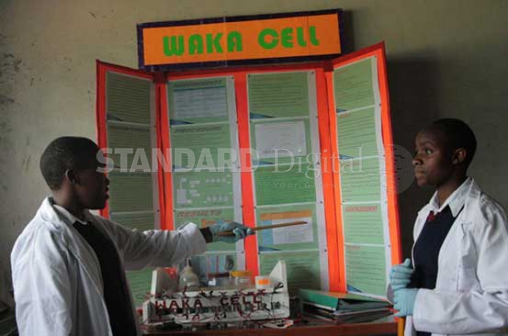×
The Standard e-Paper
Join Thousands Daily

An encounter with itchy sisal juice while extracting fibre fired up an idea by two students to explore ways of generating power from plant extracts.
The idea has led the two, students of Keriko High School in Njoro to emerge the winners in this year's Kenya Science and Engineering Fair chemistry category. The event was held last week at Egerton University.